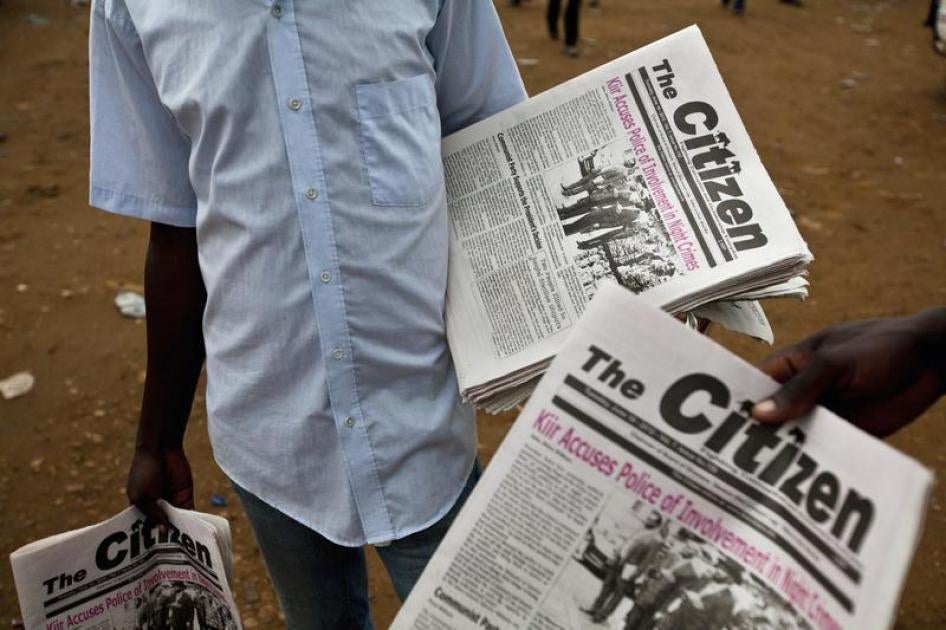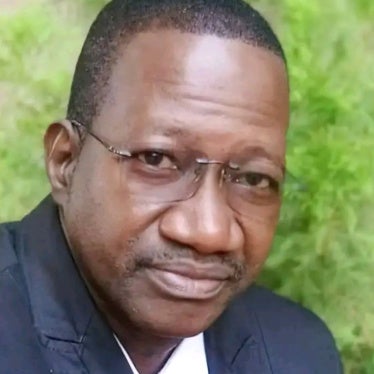South Sudan’s National Security Service (NSS) shut down two newspapers and locked up the offices of a radio station this week, dealing a sharp new blow to freedom of expression as the country sinks further into a horrifically abusive conflict.
Nhial Bol, the editor of The Citizen, a daily English language paper, began printing in Juba after South Sudan seceded from Sudan in 2011 – a move that showed a great leap of faith and pride in his new country. Yesterday, the NSS told Bol to shut down – indefinitely. NSS officers told him the reason: a press release written by opposition political parties, published by Bol on August 1, and an opinion column he published on July 28. Both pieces called on the government to sign a draft peace agreement that could end the 19-month long civil war in South Sudan between the government and rebels, headed by former Vice President Riek Machar.
Also yesterday, armed NSS officers locked the doors of the Free Voice show production organization. No justification was provided. The Arabic daily Al Rai newspaper was shut down on August 1. The editor was called into the NSS offices and told he was not allowed to print again until further instruction because a member of the editorial board is believed to be a rebel.
Since South Sudan’s independence in 2011 the NSS has repeatedly violated freedom of expression by intimidating and arresting journalists, but this has worsened since the conflict began. Another newspaper, the Nation Mirror is available online but not in print after the NSS seized its runs and shut it down in January. The newspaper made the mistake of positioning a photo of Machar on its front page, above a photo of President Salva Kiir.
This shadowy security force doesn’t just target the media. It has also detained at least dozens of civilians – and probably many more – without charge or access to a lawyer on suspicion of being connected to rebels.
But freedom of expression – the right to call out authority – lies at the heart of South Sudanese culture. I’ve seen women with no political power telling off commanders sternly in public meetings. I’ve seen a chief from a small tribe give Kiir a dressing down at a conference in an atmosphere of mutual respect. But this passion for speaking one’s mind, for equality, is being poisoned by fear.
These most recent media shutdowns should be reversed, as should a law passed last year that gives the NSS sweeping powers to arrest, detain, and search and seize property, empowering this abusive force even further. Independent voices are needed more than ever as civilians continue to suffer the atrocities, hunger, and mass displacement that have dominated this conflict. For South Sudanese to find a way out of violence, the basic right to be able to express your views freely must be protected.









